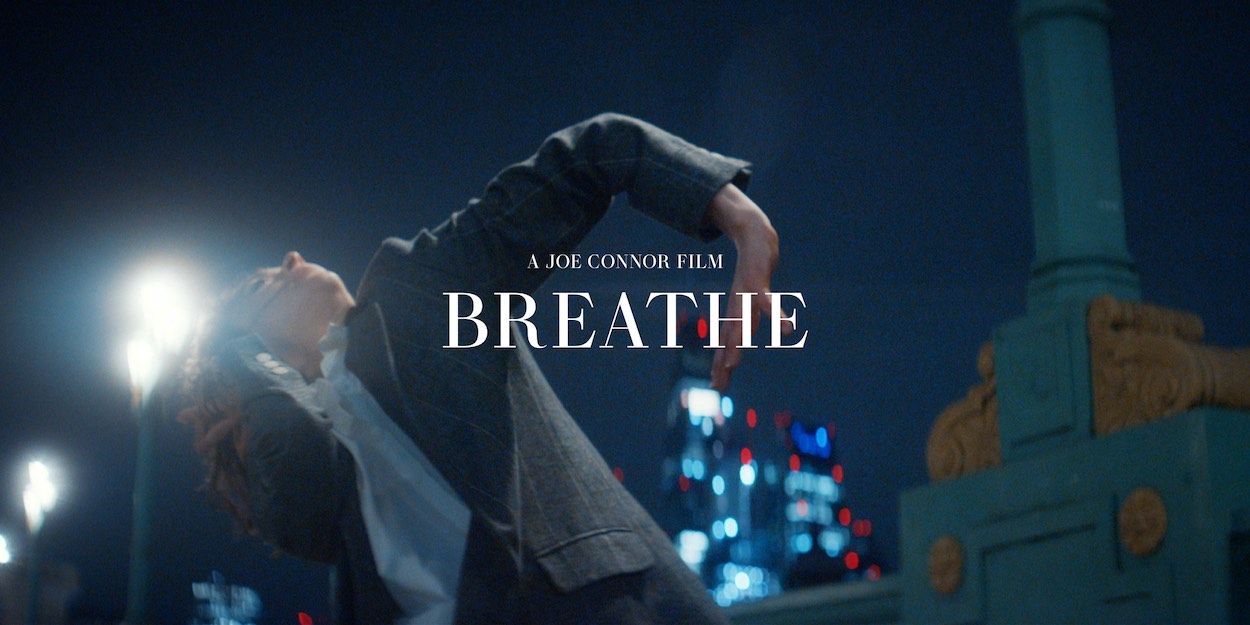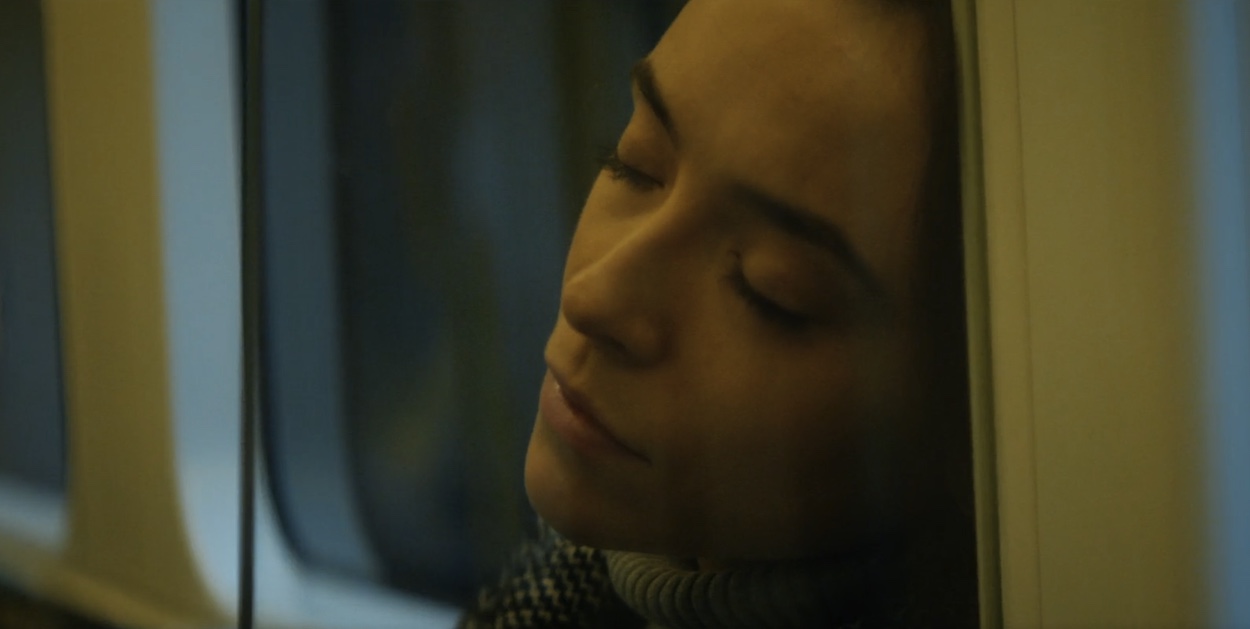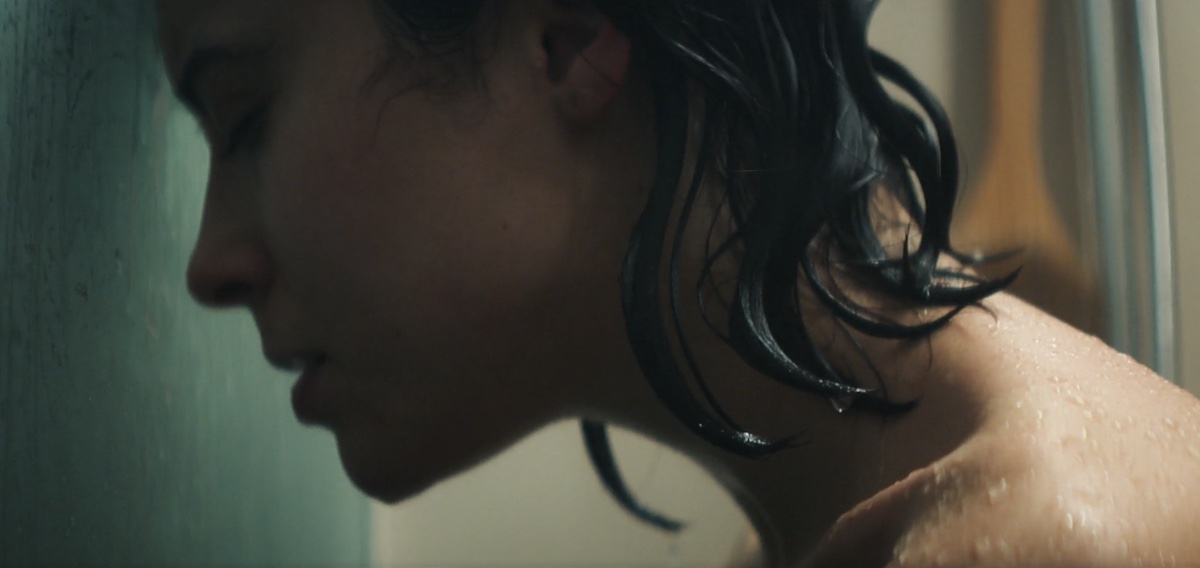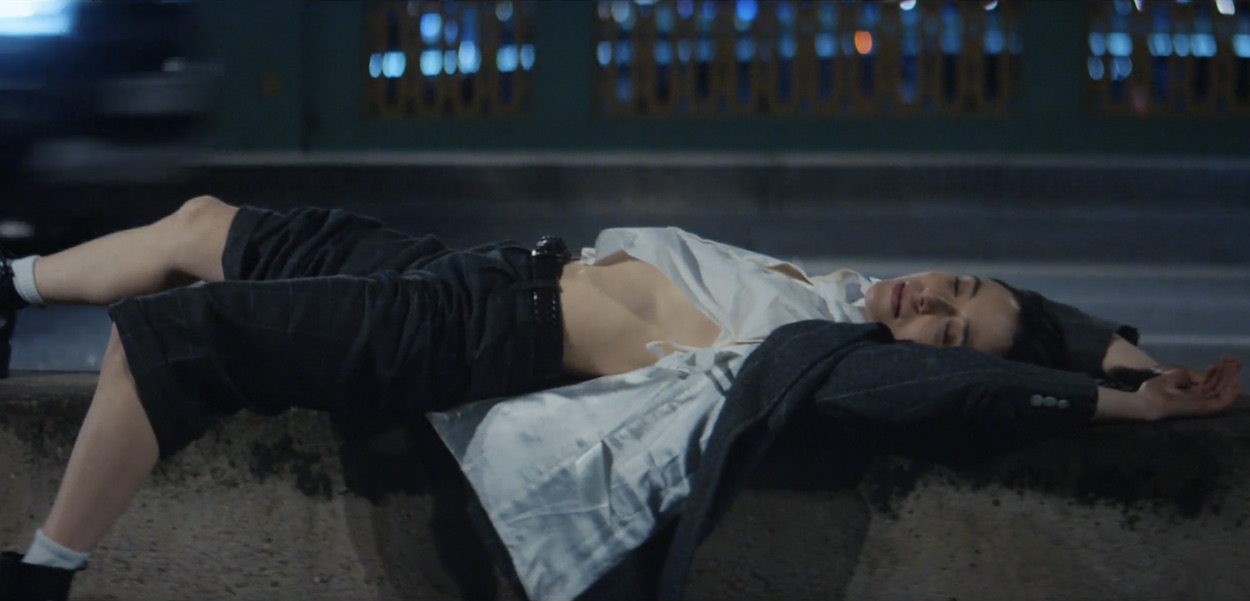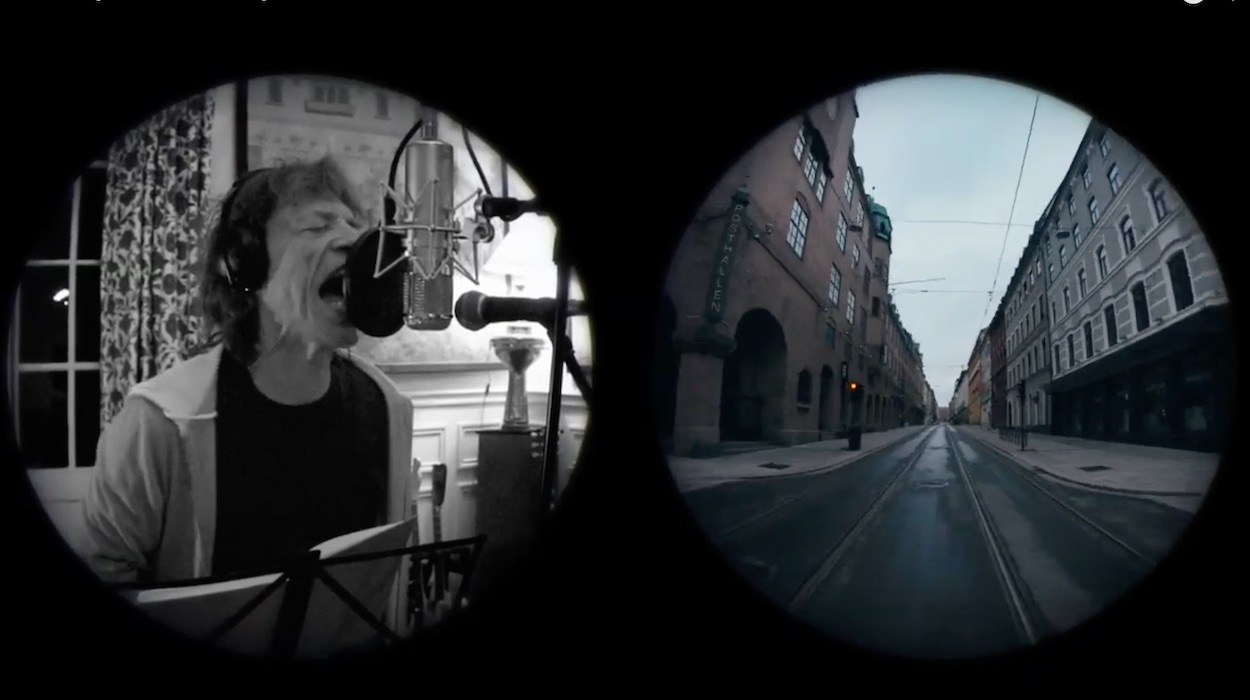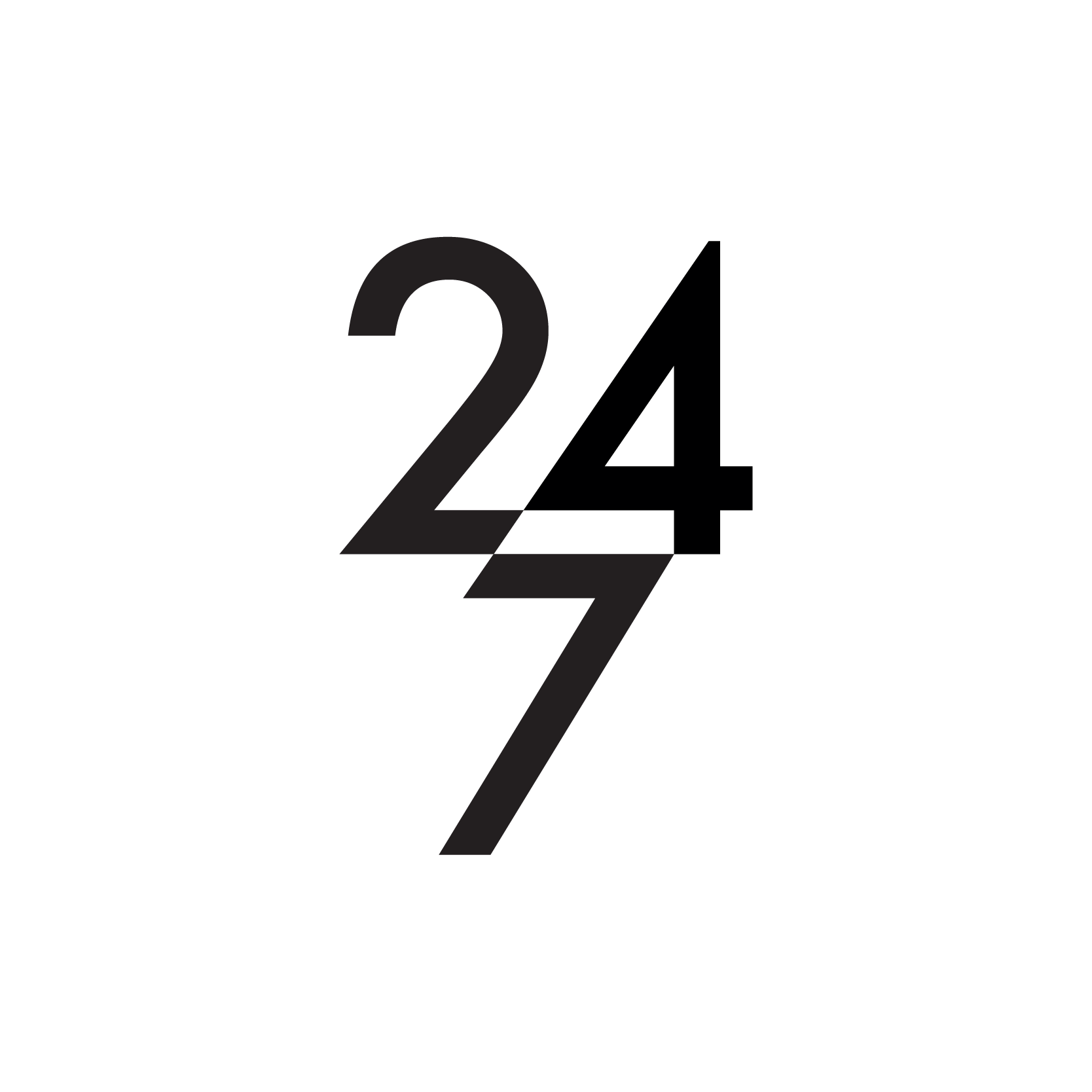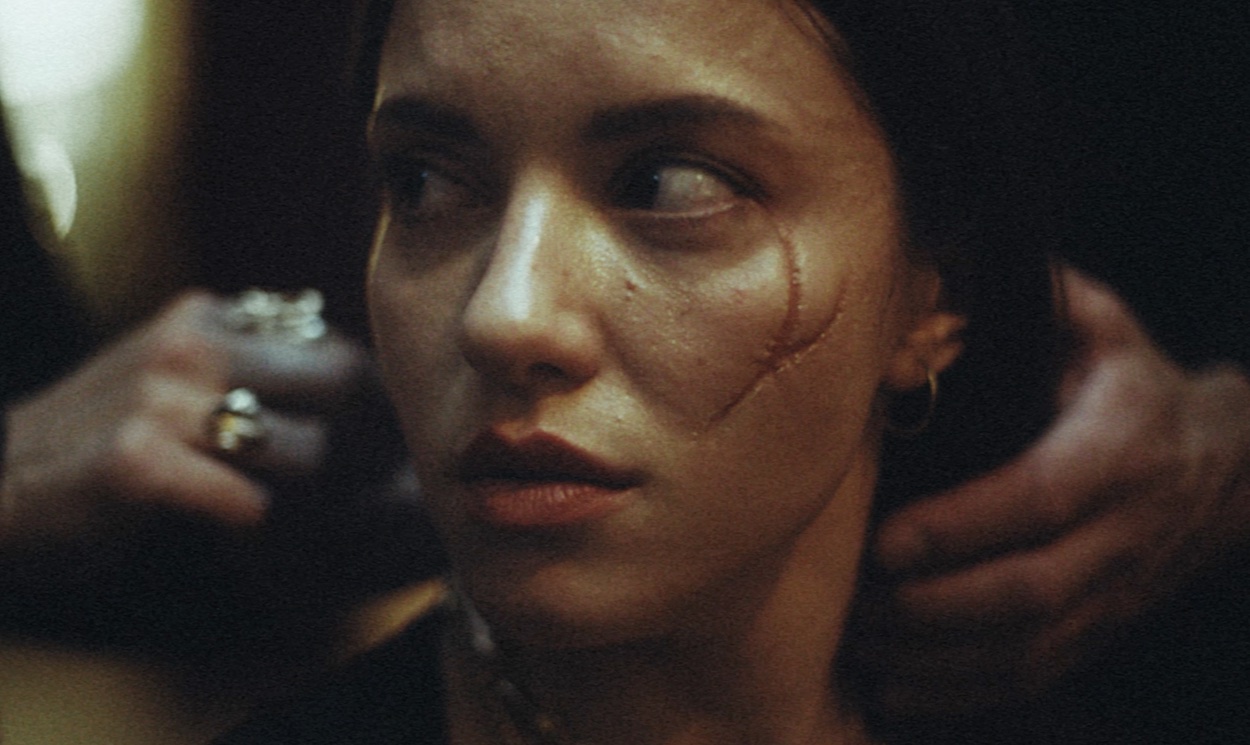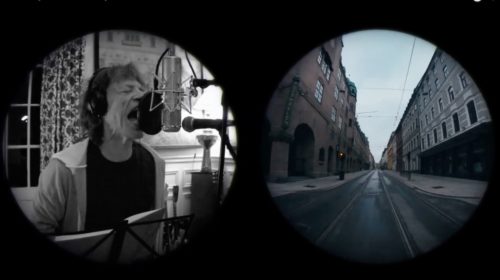Emma Farnell Watson in Breathe
‘Breathe’ is an interesting comment on a post-Covid world; somehow, despite all the talk of a new normal, a better work-life balance, a shifting of priorities during the pandemic, we’ve returned to the status quo and life feels almost busier than ever – no wonder we all need to stop and breathe. What sparked the idea for the film? Does it reflect your personal experience or is it more of a general comment?
Part of my job as a creative is to look at the times we find ourselves in and try to respond to them the best I can. I noticed how burnt out everyone seemed, certainly in London. There has been a subconscious desire to make up for lost time. A work harder, play harder mindset plunging us into a form of overdrive. I wanted to just react to that energy and create something that spoke of that feeling with my own beautiful twist. I wanted to find some redemption, some beauty to puncture the relentless grind of life. It felt apt to find that in the simple act of breathing. Breathing allows us to connect to the present moment, to our bodies.
I also noticed how in a post-Covid world, taking big lungfuls of air seemed like an alien, taboo act. This film is a simple reminder. A little nudge to stay playful, curious and to find a flow with life.
The dancing scene was somehow reminiscent of ‘Singin’ in the Rain’; were there any particular filmic, photographic or artistic references for you? How did you come to choose that location in the City, and were there any logistical challenges around shooting?
My last short film took me nine years to make from start to finish – far too long. I wanted my next project to be much more intuitive. This film arrived in my mind fully formed. I had the idea on the Friday while walking across London Bridge. I got the locations and equipment together on the Saturday and shot it by the Monday. It felt like a wave of creativity that needed to come out.
Southwark Bridge has always held this mystical, magical quality for me. It’s such a beautiful bridge but it’s also called the ‘Lonely Bridge’ due to its lack of traffic. Once the sun sets, it becomes a quiet little haven in the middle of the city. I walk around London a lot and it’s a place I’ll usually sit and take photographs or write notes, I feel inspired on that bridge, so it felt apt to shoot there. The sense of openness on the bridge perfectly counterpoints the claustrophobia we’ve felt up until that point in the film. Plus, from a punk perspective, it’s a place I knew I could get away with shooting at. No one would stop me.
Breathe
Dancer/model Emma Farnell Watson’s performance is utterly compelling – it’s impossible to tear your eyes away from the screen. How did you approach casting; was she someone who was already on your radar?
I’ve worked with Emma a lot over the past few years. She was recommended to me by Hofesh Shechter for an earlier project that didn’t quite happen. Since then, we’ve just stayed in contact and created together as often as we can. She’s a brilliant, sensitive, dynamic artist. What I love in this film is her ability to transform from a timid, unassuming character into an elegant, sensual, dynamic character when she dances. It’s remarkable.
In the days before the shoot, we spoke about the character’s internal journey and how we wanted the movement to feel. The actual execution of the dance came from Emma synthesising all that info and then just flowing with it. I still get goosebumps thinking about seeing the dance come out of Emma on the bridge.
Breathe
We love your trio of films for the BBC’s Summer of Music, which really capture the transportive power of music and tech combined. How did you go about getting that immersive, IRL look and feel?
I wanted to plunge the viewer as close to the actor as possible. Isolating singular body parts; eyes, lips, and hands and shooting them with a beauty that transports us. The simplicity, beauty and abstractness of the images allow the voiceover to have the weight and authority of Attenborough. It allowed me to misdirect the viewer, showing them just enough so that they believe the misdirect. It felt like a poetic direction on the subject matter.
I also really love music. I write it, play it, listen to it, and immerse myself in it. It is my lifeblood. I wanted to do justice to the amazing scripts by creating images that felt fresh and new. Steve Annis was exactly the type of DOP to deliver compelling images.
But the main element, the thing that really catapults people into these films is the sound design. There is a symphony of noise that support the images that propels people through these edits. Sound designers get a lot of credit when their work is front and centre, but the subtleties of Jack Sedwick’s work here is an absolute masterclass in storytelling through sound.
BBC’s Summer of Music
You’ve directed music videos for the Rolling Stones, Coldplay, Sam Smith and Paul Weller, to name just a few: do you tend to approach briefs in a similar way? What’s your creative starting point and how far are you guided by the lyrics?
I approach all my work the same way – immersion. All my best work has come from an illogical emotional place. I just try to feel rather than think about what I want to see. This allows a smorgasbord of thought to percolate. I’m just a curious creature, I love to get stuck into a new sound, song, script or project and I try not to put too many requirements on it, it’s probably why my reel is so ‘eclectic’ or so I’m told. I hope that the only mark of the maker you can see in my work is a dedication to quality that exists across the board. Everything else is up for grabs.
“It takes a long while for a director to cease thinking in terms of the result he desires and instead concentrate on discovering the source of energy in the actor from which true impulses arise.” ~ Peter Brook
If we substitute the word ‘actor’ for ‘track’ or ‘script’ or ‘project’, you begin to see my process. Tap into the energy of the thing you’re making and run with it.
BBC’s Summer of Music
How has your background in drama – you trained at the Royal Central School of Speech and Drama and founded a theatre group – influenced your approach and aesthetic as a filmmaker?
It was very interesting moving from making theatre to making films, but I was never out there making Shakespeare or Chekov anyway. The theatre I was making was strange, silent, anarchic pieces about the planets, a washing line or a vacuum cleaner… We were dedicated to making stories from unusual starting points.
The real benefit of going to drama school was how eye-opening it was. I moved to London at 18 from Warrington and was suddenly surrounded by dedicated, brilliant artists. I was being taught by some of the greats of theatre; Anne Bogart, Orlan, Punchdrunk, and Rebecca Lencovich. I realised I had to work twice as hard and be twice as committed to make sure I made the most of the opportunity I’d been given.
I think you can see some roots of my theatre work in [the videos for] Coldplay’s ‘Everglow’ or Hikaru Utada’s ‘Bad Mode’. They’re quite theatrical in their execution and it’s something I want to push more. More unique ideas and theatrical ways of achieving them. I think we can see that the world is ripe for this trend. Look at how successful Megaforce have been with Burberry. The ideas and execution are so theatrical in a cinematic way. Hopefully, I’m perfectly positioned both at Rogue and with my background to explore ideas of that ilk.
Rolling Stones, Ghost Town
You’ve also worked as a film projectionist; tell us about some of the films that have made an impact on you…
Well, this is where my life gets interesting. I only took a job in the cinema to pay my rent while at drama school. I’d always worked in bars, and this cinema sold beer so I just got a job behind the bar. One day the projectionist fell ill and they needed a replacement. I chucked my hat in the ring because it was an extra two quid an hour. That decision changed my life.
It was an old 35mm cinema, it hadn’t moved to digital just yet and the projectionist had to watch every film that played to make sure the print didn’t get damaged. I watched every film in that cinema three times a day, six days a week, for nearly four years. The cinema had a real breadth of programming from Hollywood blockbusters to art house Iranian films, old revivals, and classics. It was the best film school. After a few watches in the auditorium, I would watch the films from the projection booth with the sound down to watch the cut, watching the way the masters edited their films.
I remember screening an early 35mm print of Buster Keaton’s ‘The General’ for some archivists. I think it was one of the only prints around of the film. When I saw that film projected in a cinema, I instantly saw the connection between film and the strange silent theatre I was making at Central. I just fell in love with the process of filmmaking, storytelling in images.
Are there any topics you’re keen to explore in future projects, be they commercial or personal?
I’m excited to see where life takes me. I try and stay open to everything this mad ride offers.
The incredible work by Megaforce for Burberry and the recent B&Q [‘Flip’] commercial show that the world is keen to see ideas executed in a more theatrical way. While there’s a time and place for CGI, you just can’t beat working something out and doing it for real. I’ve always had that in my locker, and so I’m looking for projects that make the most of my skills in that world. Brave agencies, brave brands keen to make bold work.
Also, my sister was born with both Downs’ Syndrome and autism when I was 12, and I’d love to find a project that explores my family’s experience in a unique way. I’d love to tell a story that my sister both loves, finds exciting and sees herself represented in. I’ve never seen an advert with the scope and cinematic scale of say, Lacoste ‘Crocodile Inside’ but with a Downs’ Syndrome actor. I know there’s space for this kind of casting and work, but I also know it’s down to me to bring that to the table and push for it.
I’m also currently writing two other feature film scripts and two long-form TV scripts. I never make it easy for myself.
And finally, what’s in the pipeline for you workwise?
I’ve got a few projects in the pipeline. A new documentary for Sky Arts on The Specials which should be out next year, and a big project shooting next January that has the scope and scale of a feature film. It’ll be my biggest project to date, and I’m really excited by it. I have another short I want to complete before the end of the year and the usual pitching, pitching, pitching of music videos and commercials.
I’m also writing a new album of techno music with director Emil Rafael. We’ve created a new project together called Supermodel. It’s been really fun to collaborate with another director and create something for the love of it.
Interview by Selena Schleh
Info:
See more of Joe’s work:
Joe Connor website
BREATHE
Director / Writer : Joe Connor
Producer : Andrew Rawson
Emma: Emma Farnell Watson
Exec Producer : Fred Bonham Carter
Exec Producer : Alexa Haywood
DOP : David Procter BSC
Composer : Jonny Colgan
Edit : Jacques Simon
Edit House : Trim Editing
Sound Design : Jack Sedgwick
Sound Company : King Lear
Grade : George K
Post Production House : Black Kite Studios
Focus Puller : Matt Farrant
Loader : Jack Lightfoot
Steadicam : Austin Phillips
Gaffer : Norbert Varjasi
Sound : Matt Greig
Stylist : Guilia Moliarov
Security c/o Hoxton Film Services
With thanks to Rogue Films, BlackKite Studios, King Lear, Just Fred and Trim.
